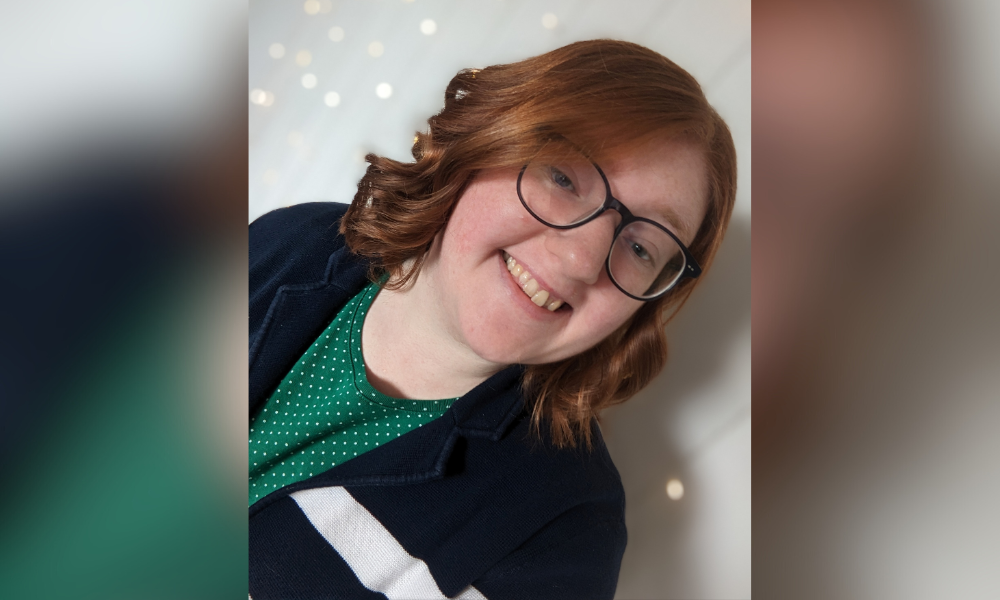Specialist adviser says maths skills can help you progress faster

While many new mortgage brokers get their grounding in the business working on the ‘so-called’ vanilla end of the residential market, Megan Atkinson (pictured) is cutting her teeth in specialist finance, advising on less conventional, arguably more complex property projects.
As a recently qualified broker with Layline Financial in Newport, South Wales, Atkinson’s expertise covers bridging, buy-to-let, development finance, as well as HMO, limited company and commercial mortgages, generally involving loans of up to £1 million.
It’s just as well, then, that Atkinson has a passion for numbers. She gained a first class bachelor’s degree in mathematics, before going on to get a distinction in her MSc in international finance and banking. Whatever challenge comes her way, numerals are clearly a source of reassurance for her. “I always think back to maths, think back to numbers, and there's always an answer in one way or another – a problem can be solved,” Atkinson said. “It's interesting because our new trainee at the moment is also a mathematics graduate. When you've got that good mathematical head, it really does help you progress a lot faster, I feel. It definitely gave me a boost coming into the profession, understanding the numbers in the background. It makes everything move a bit smoother.
“You need to be able to understand your net loan amounts, your gross loan amounts, and you've got to be able to absorb that and present it to the client; making sure you’re explaining it in a way that they then understand. A client who comes to mind is a plasterer. He's built up a fairly significant portfolio in the past five to 10 years, he understands property and he understands the work involved. This client in particular will always stop and say, ‘you're talking too many numbers now’, and I say, ‘well, I need to make sure that you are understanding it’. I wouldn't start telling him what to do about plaster because I have no idea.”
After leaving Aberystwyth University in 2023, Atkinson sought work and saw an advertisement for a trainee specialist finance adviser role. Her interest in mathematics and property came together in what seems to have been perfect synchronicity.
“It wasn’t ever something that had crossed my mind,” she explained. “No-one ever told me anything about mortgages in school. I remember my dad trying to explain to me what an endowment mortgage was when I was about 12, and I just couldn't get my head around it. I just couldn't understand that you still owe money at the end, but now it makes perfect sense.” Atkinson continued: “Numbers in finance have always been of interest to me and I always love being on Rightmove. A lot of our clients will do HMO conversions, and I always spend way too long looking at the floor plans, looking at the photos. So, it all tied in well, really.”
Read more: How knowing when to take a career risk can lead to success
What makes a specialist mortgage broker’s role attractive?
Part of the attraction of the job for Atkinson is the variety of the work she does.
“We do some pretty quirky and complex cases,” she enthused. “The opportunities are endless, there's always going to be something else that absolutely surprises you. It's definitely a really good mix because you're not just doing the same thing every day. Every property is a different, every client situation is a different. So, it's really good to be challenged and to have such problem solving every day. There's definitely an imposter syndrome where I'm a mid to late 20s individual and here I am telling you what to do about hundreds of thousands of pounds for your bridging case and your purchase of a property, but everyone has their profession and what they do.”
Beyond being good at mathematics, what makes a good mortgage broker in Atkinson’s view?
“You need to be really personable because 50-60% of what we do is talking to clients day in, day out - you really need to build good relationships,” she reasoned. “Sometimes you can get very involved with a case, and if there is a bad outcome, you can take it too personally. We don't have control over every aspect of the case, do we? We don't have control over a valuation. It definitely can be stressful, some days can be hard, but you've got to remember the bigger picture, and say tomorrow is a new day.”
Atkinson expects to spend the next few years of her career building on the skills she has accumulated so far. And with such a strong academic background to her name, it comes as no surprise that in the future she hopes to get involved in the financial education of school pupils.



